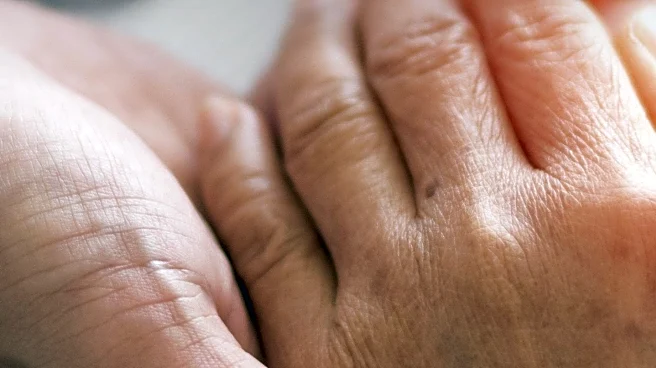What's Happening?
The National Organization for Rare Disorders (NORD) has announced a request for proposals (RFP) aimed at nonprofit patient advocacy organizations to implement two new patient registries on the IAMRARE®
platform. This initiative is funded by the Rare Disease Cures Accelerator – Data and Analytics Platform (RDCA-DAP), a collaborative effort supported by the U.S. Food and Drug Administration (FDA). The registries are intended to collect patient-reported data to advance research and therapy development for rare diseases. Successful applicants will collaborate with NORD starting in April 2026, with a discounted annual rate of $5,000 for NORD Member Organizations. The registries will require a commitment to a five-year natural history study, including staffing and financial resources, and data submission to RDCA-DAP.
Why It's Important?
This initiative is significant as it aims to enhance the understanding and treatment of rare diseases, which affect over 30 million Americans. By establishing new patient registries, NORD seeks to provide a structured platform for data collection that can accelerate therapy development. The collaboration with the FDA and the Critical Path Institute underscores the importance of standardized data in advancing medical research. Organizations participating in this initiative will contribute to a broader effort to improve health outcomes for individuals with rare diseases, potentially leading to new treatments and therapies.
What's Next?
The application period for the RFP opens on November 15, 2025, and closes on January 10, 2026. Accepted applicants will be notified by February 1, 2026, with implementation beginning in April 2026. Organizations interested in applying must meet specific criteria, including being a 501(c)(3) organization representing a rare disease community and having the resources to support the registry. The initiative will require collaboration with experts to design disease-specific questions and ensure patient engagement and retention.
Beyond the Headlines
The establishment of these registries could lead to long-term shifts in how rare diseases are researched and treated. By providing a centralized infrastructure for data collection, the initiative may foster greater collaboration among researchers, healthcare providers, and patient advocacy groups. This could result in more targeted and effective therapies, improving the quality of life for those affected by rare diseases.









